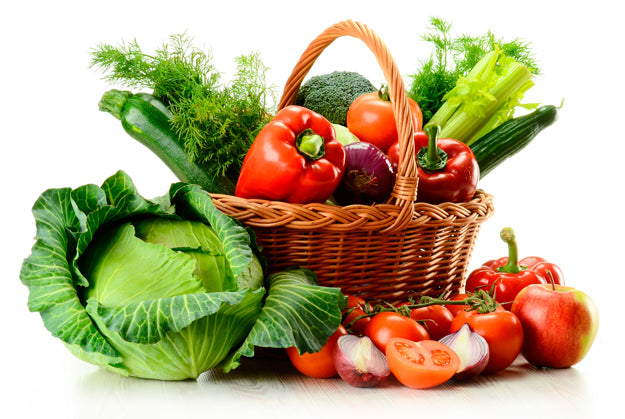
What is the Difference Between Organic and Inorganic Fruit?
Share
In today's increasingly health-conscious society, understanding the difference between organic and inorganic fruits is more important than ever. As we navigate grocery aisles, we're bombarded with choices that not only affect our health but also have broader implications for the environment. This article delves into the nuances between organic and inorganic fruits, aiming to arm you with the knowledge to make informed decisions.
Understanding Organic Fruit
Certification and Standards
Organic fruits must adhere to strict guidelines set forth by certification bodies. These standards ensure that fruits are grown without synthetic pesticides, fertilizers, or genetically modified organisms (GMOs), emphasizing natural processes that maintain ecological balance.
Benefits of Organic Fruit
One of the key benefits of organic fruit is its lower likelihood of containing harmful pesticide residues. Additionally, some studies suggest organic fruits may offer higher nutritional value in terms of vitamins and minerals, making them a potentially healthier choice for consumers.
Understanding Inorganic Fruit
Common Practices
In contrast, inorganic fruits are produced using conventional farming methods, which often rely on chemical pesticides and fertilizers to enhance growth and yield. These methods can lead to higher levels of pesticide residues in the final product.
Concerns with Inorganic Fruit
The primary concern with inorganic fruits revolves around the health risks associated with pesticide exposure. Pesticides can pose health risks, including potential links to cancer and developmental issues, particularly in children.
Nutritional Differences
Vitamins and Minerals
Research indicates that organic fruits may boast higher levels of certain vitamins and minerals compared to their inorganic counterparts, partly due to the more nutrient-rich soil in which they are grown.
Pesticide Residue
A significant advantage of organic fruit is its lower pesticide residue, which reduces consumers' chemical exposure and potential health risks.
Environmental Impact
Farming Practices
Organic farming practices emphasize sustainability and environmental preservation, using methods that promote biodiversity, reduce chemical runoff, and enhance soil health.
Sustainability
Choosing organic fruits supports sustainable farming practices that are less harmful to the planet, contributing to a healthier ecosystem.
Cost Comparison
Price Factors
Organic fruits often come with a higher price tag due to the more labor-intensive farming practices and the certification process required to verify organic status.
Consumer Choices
Despite the higher costs, many consumers opt for organic fruits, valuing their health and environmental benefits over the price difference.
Taste and Appearance
Taste Profiles
While taste can be subjective, some consumers report that organic fruits taste better, possibly due to the healthier soil and growing conditions in which they are cultivated.
Appearance Differences
Organic fruits may not always look as flawless as inorganic ones, but these aesthetic differences do not diminish their nutritional value or taste quality.
Health Implications
Long-term Health Benefits
Opting for organic fruits can lead to better health outcomes over time by minimizing exposure to harmful chemicals and potentially increasing nutrient intake.
Risks Associated with Pesticides
The health risks associated with pesticide exposure, particularly from inorganic fruits, include potential links to chronic illnesses and developmental issues.
How to Choose the Right Type of Fruit
Labels and Certifications
To ensure you're buying organic, look for fruits bearing official organic certifications or labels, which indicate adherence to organic farming standards.
Personal Health and Environmental Considerations
The choice between organic and inorganic fruits often comes down to personal priorities regarding health, taste, cost, and environmental impact.
Conclusion
Understanding the differences between organic and inorganic fruits enables you to make choices that align with your health objectives and environmental values. Whether you prioritize nutritional content, environmental impact, or budget considerations, being informed is the first step towards making choices that best suit your lifestyle and values.
FAQs
-
Is organic fruit really healthier than inorganic fruit? Yes, organic fruit is often considered healthier due to higher levels of certain nutrients and lower pesticide residues.
-
Why do organic fruits cost more? The higher cost is due to more labor-intensive agricultural practices and the certification process required to label fruits as organic.
-
Can washing inorganic fruit remove all pesticide residues? Washing can reduce but may not remove all pesticide residues.
-
Are there environmental benefits to choosing organic fruits? Yes, organic farming practices reduce pollution, conserve water, reduce soil erosion, and increase soil fertility.
-
How can I identify organic fruits at the store? Look for fruits labeled with a certified organic seal or sticker.